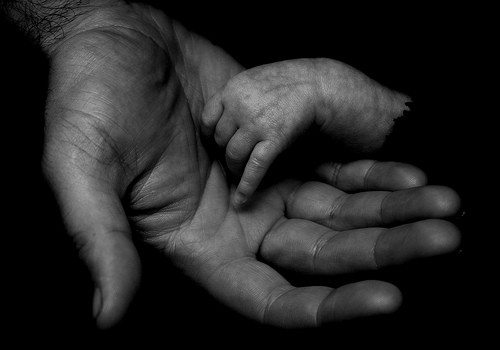
Older fathers are more likely to have children with mental disorders, researchers reveal.
In the study, children born to men aged 45 had greater risk of developing autism (3.5 times higher risk), bipolar disorder (25times), attention deficit hyperactivity disorder or ADHD (13 times), psychotic disorders (double risk), substance abuse and suicidal behaviour (2.5 times) than children of fathers aged 24.
Findings published in the JAMA Psychiatry are based on 2.6 million people, who were born between 1973 and 2001 in Sweden. To give an accurate result, researchers studied siblings and compared them to their cousins.
The joined investigation conducted by researchers from Karolinska Institute in Stockholm in Sweden and Indiana University in US found that risk of developing these psychiatric problems in children went up dramatically with an increase in the father's age at the time of conception.
"We were shocked by the findings," lead author of the study, Brian D'Onofrio, associate professor in the Department of Psychological and Brain Sciences in the College of Arts and Sciences at IU Bloomington, said a in a University press release. "The specific associations with paternal age were much, much larger than in previous studies. In fact, we found that advancing paternal age was associated with greater risk for several problems, such as ADHD, suicide attempts and substance use problems, whereas traditional research designs suggested advancing paternal age may have diminished the rate at which these problems occur."
Mutations in the sperm increases with a person's age, researchers, while explaining the occurrence, said.
Previous research into the topic has shown the same. A study published in the scientific journal Nature in 2012 found that men who delay their fatherhood, transferred more number of genetic mutations to their offspring, thus putting them at higher risk of various types of developmental and psychiatric problems including autism and schizophrenia.
The total number of mutations a young father (20 years) passes on to his child is estimated to be 25. This number goes up every year, (two mutation every year) making the total numbers to 65 by the time the man reaches 40 years. Unlike the popular belief that links mother's late age to chromosomal abnormalities like Down syndrome, the Iceland study couldn't find any risk associated with delayed motherhood as the total number of mutations remained 15 all the time.
Like age, paternal weight and mental condition during conception also have an important role in children's health. Studies have shown that obese fathers increase risk of cancer in offspring, slim down chances of pregnancy and father smaller babies. A study found that paternal depression at 18 weeks of gestational age led to emotional, behavioural problems in kids by age three.

















